History
Egypt’s history is synonymous with the grandeur of its ancient civilization
Pyramids of Giza: The Great Pyramid of Khufu, built around 2560 BCE, is the last surviving wonder of the
ancient world. These monumental tombs, along with the Sphinx, reflect the architectural and engineering
prowess of the ancient Egyptians.
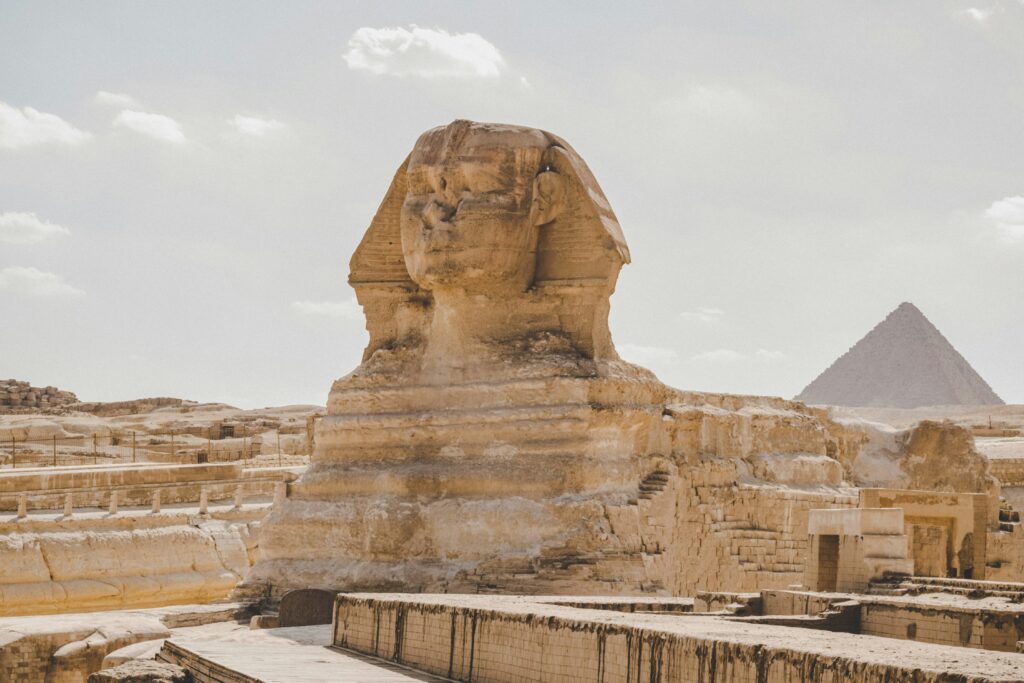
Luxor and Karnak Temples: Luxor, known as Thebes in ancient times, was the religious capital of Egypt.
The Karnak Temple complex is a vast open-air museum of hieroglyphs, obelisks, and colossal statues
dedicated to the god Amun-Ra.
Valley of the Kings: Located on the west bank of the Nile near Luxor, the Valley of the Kings houses the
tombs of pharaohs and nobles, including the famous tomb of Tutankhamun (KV62), discovered nearly
intact in 1922.
Greek and Roman Period
Egypt’s history includes periods of foreign rule and cultural exchange
Alexandria: Founded by Alexander the Great in 331 BCE, Alexandria became a center of Hellenistic culture
and learning. The city features landmarks like the Roman amphitheater and the Catacombs of Kom el
Shoqafa.
Roman Egypt: Under Roman rule, Egypt flourished economically and culturally. Roman ruins can be found
in cities such as Kom Ombo, Edfu, and Philae
Modern Era
In the 20th century, Egypt underwent significant political changes
Independence: Egypt gained independence from British occupation in 1952 following the Egyptian
Revolution. Gamal Abdel Nasser became a prominent leader, ushering in a period of nationalism and pan-Arabism.
Cultural Revival: Egypt’s modern era saw a resurgence of interest in its ancient heritage, with initiatives to
preserve and showcase archaeological sites and artifacts.
Tourism Places
Egypt offers a wealth of attractions for history enthusiasts and nature lovers alike
- Egyptian Museum (Cairo)
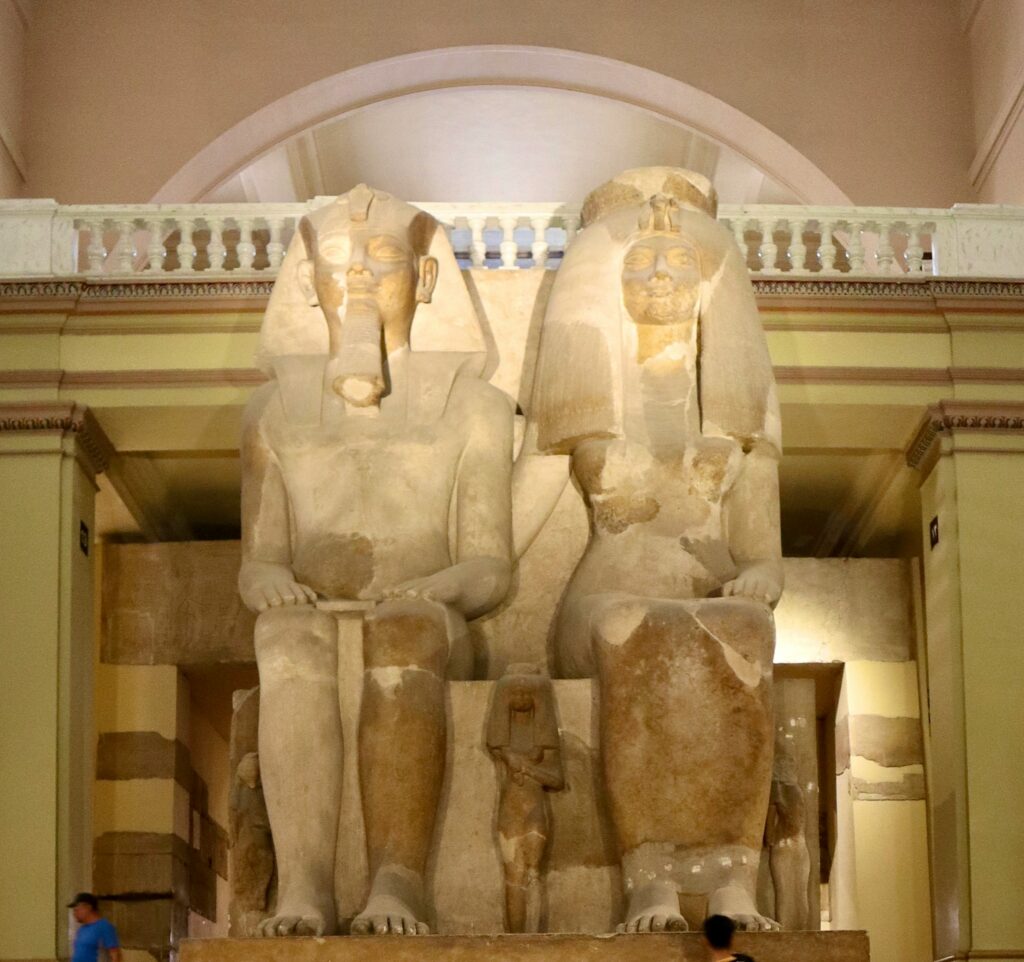
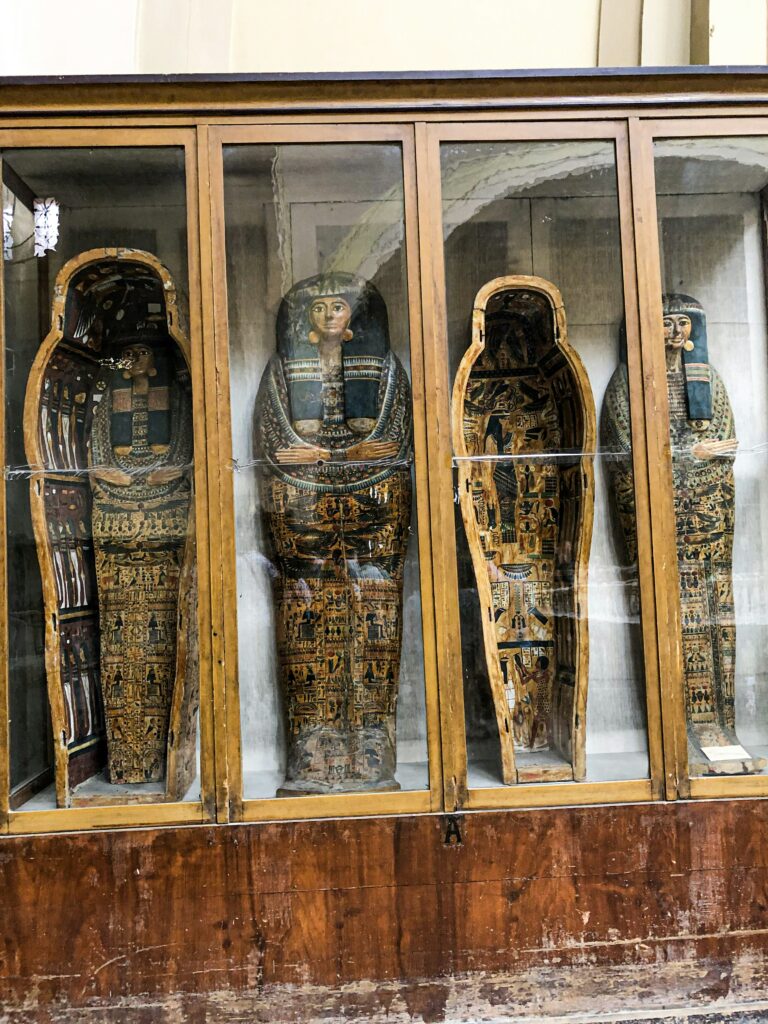
Explore one of the world’s most extensive collections of ancient Egyptian
artifacts, including the treasures of King Tutankhamun’s tomb.
- Red Sea Riviera

Relax on the stunning beaches of resort towns like Sharm El Sheikh and Hurghada,
renowned for their coral reefs, snorkeling, and diving opportunities.
- Aswan
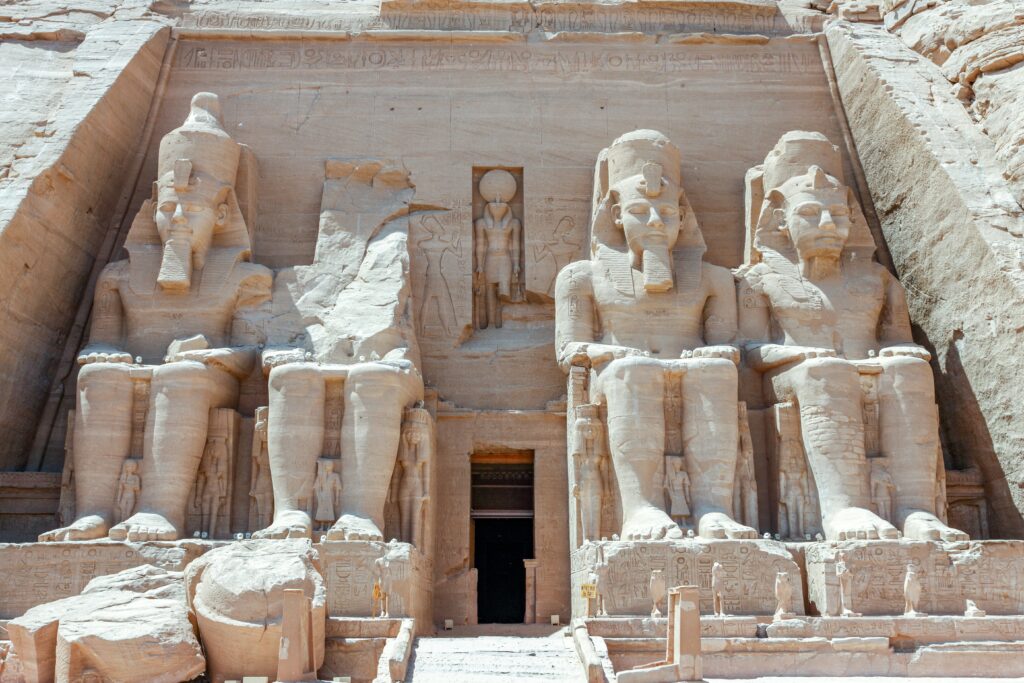
Visit Aswan to see the High Dam, sail on a traditional felucca (sailboat) on the Nile, and explore
the temples of Abu Simbel.
- Siwa Oasis
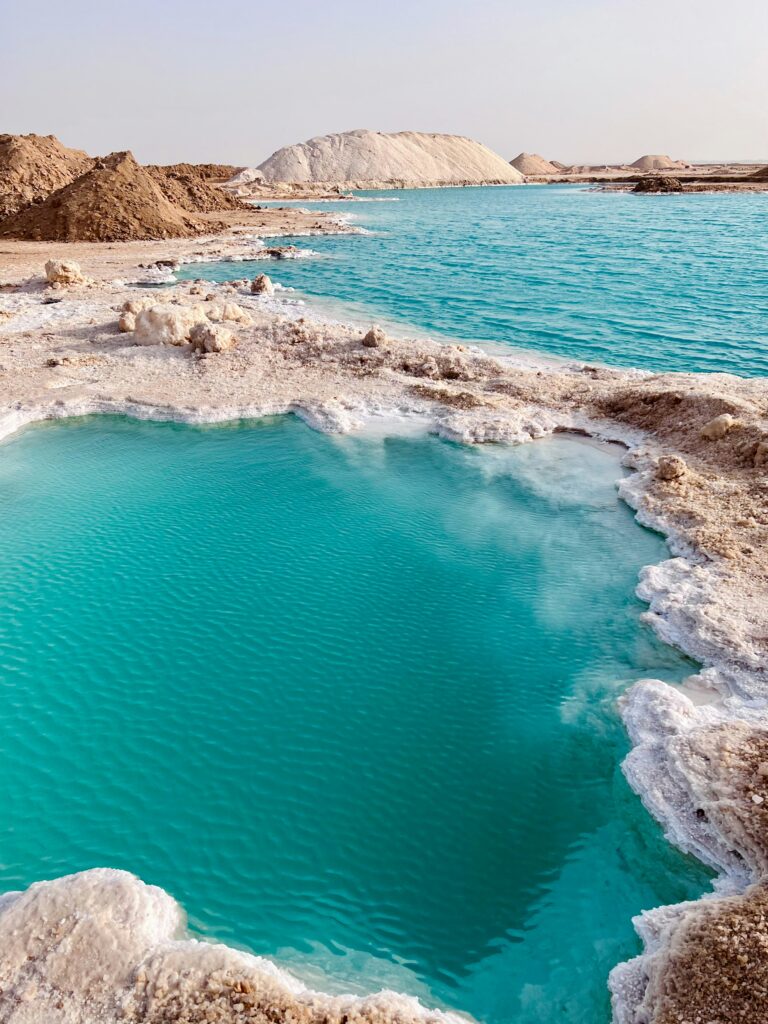
Experience the serene beauty of the Siwa Oasis in the Western Desert, known for its hot springs,
date palms, and ancient ruins.
- Mount Sinai

Trek to the summit of Mount Sinai (Jabal Musa) to witness breathtaking views and visit St.
Catherine’s Monastery, one of the oldest Christian monasteries in the world.
Culture
Egypt’s culture is a vibrant blend of ancient traditions and modern influences
- Festivals: Egyptians celebrate religious and national festivals with enthusiasm, including Eid al-Fitr (end of Ramadan) and Sham el-Nessim (spring festival).
- Hospitality: Egyptians are famously hospitable, often welcoming guests with Egyptian tea (shai) and offering sweets like baklava or basbousa.
- Dress Code: Traditional attire includes the galabeya (long robe) for men and the hijab or modest clothing for women. Urban areas also embrace Western fashion.

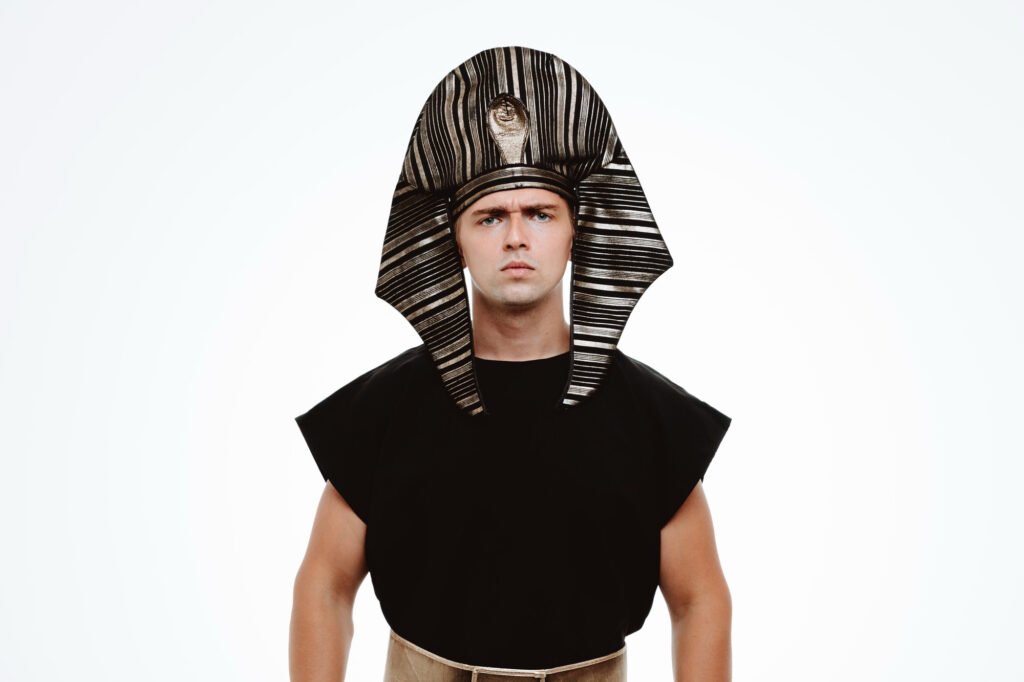
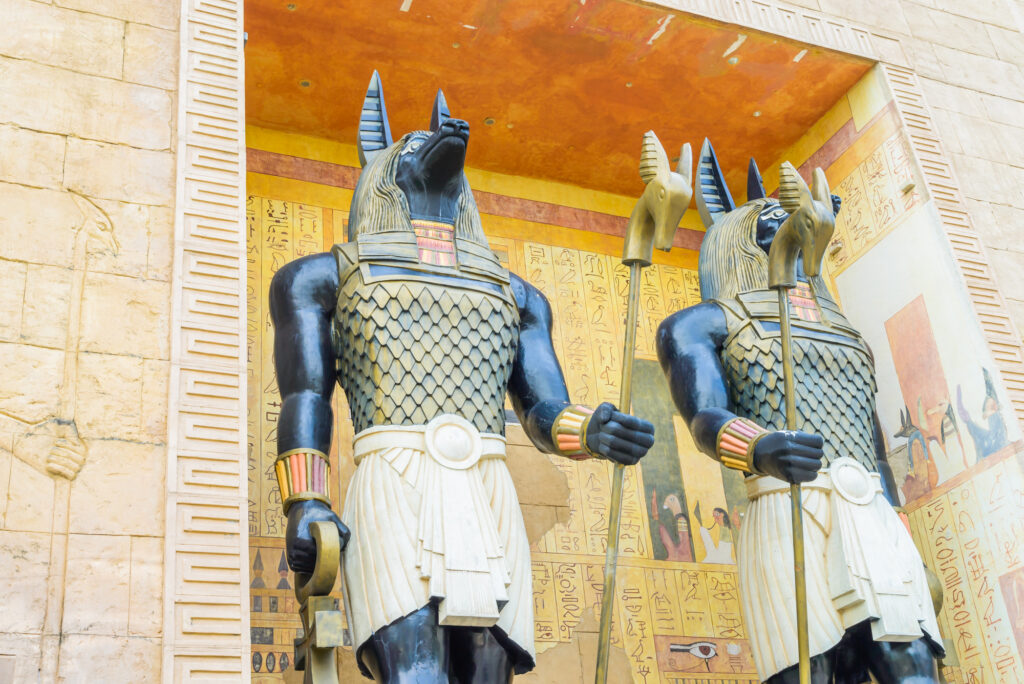
Cuisine
Egyptian cuisine is flavorful and diverse, reflecting the country’s agricultural bounty and historical
influences
- Koshari: A popular street food dish made with rice, lentils, chickpeas, pasta, and a tangy tomato sauce, topped with crispy fried onions.
- Ful Medames: Mashed fava beans seasoned with olive oil, garlic, and lemon juice, often enjoyed for breakfast with bread.
- Mahshi: Vegetables like vine leaves, eggplant, and zucchini stuffed with a savory mixture of rice, herbs, and minced meat, served with tomato sauce.
- Baklava: Layers of flaky pastry filled with nuts (such as pistachios or walnuts) and sweetened with syrup or honey.



Egyptian cuisine is a fusion of Mediterranean, Middle Eastern, and No



